

Tekken 8
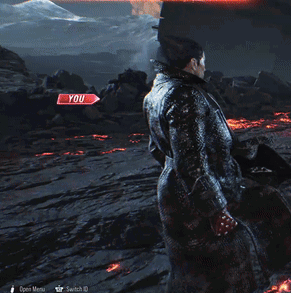
Around this time last year, I was neglecting classes and playing Tekken 7 because I felt like giving it a shot again. It had been a while since I had bothered to play Tekken, so surely it couldn't hurt, right? I needed to get myself in gear before trying to introduce my college friends to it, just so that I wouldn't be talking out of my ass when giving advice, so I gave the character closest to TTT1 Jin a shot - Devil Jin - and got my ass kicked by a Decaffeinated Devil Jin Main. Utterly furious at this prospect, and considering that there really weren't that many people still playing the game, I sent this mystery man a friend request in order to learn from my mistakes.
Maybe four months or so ago, I dropped the successor to Tekken 7 because there wasn't anything to live up to. I had already climbed up to the point where I could stand toe-to-toe with my mentor, and ranked just wasn't worth the frustration. I had made a lifelong friend, and I had become so proficient that I could teach my friends damn near anything I wanted to, but the road came to an end. That was that.
What changed?
Tekken was one of the first fighting games I decided I really wanted to take seriously. Tekken 3 came after Street Fighter III:3rd for me, and even though I could barely wrap my head around the concepts as an infant who thought Paul was a funny character, it still felt incredibly dynamic. It was different in stride and pace to the other fighting games I had played; hell, it was a massive break from the other PS1 titles I had played by far. It felt good, it felt buttery-smooth, it felt like there was force to the dance of the hand and the gamepad. This started my love affair with Tekken, which quickly shifted to trying to play the latest entry at that time, 7; utterly confounded by the tech of that game, I kind of just pressed buttons and hoped things would work. It kind of did, sure, but I didn't learn about frames or anything until way later on down the line. But Tekken was part of my daily routine, and goddamnit, I don't regret anything. Tekken 7 wasn't far removed from 3, Tag 1, or 4. And since those were the only ones I had emulated, that's all I really had to go off of on the elusive topic of "real Tekken."
To summarize these last few bits, Tekken was important to me. To some extent, it still is important to me. But I didn't have any target back then to reach, just some conceited idea of being 'the best' that every high schooler gets when they get on a multiplayer game. Years later, I had a concrete reason to grow and learn all of the nomenclature, I had reason to understand what frames and punishes were because there was no way in hell I was going to win without them. Those were the early Tekken 7 practice sessions, and this is the state I was in when I was introduced to Tekken 8.
My first exposure was at a local arcade, if you can call it that. It was really just a bunch of gaming computers you could rent out for cheap, but since they had controllers and shit you could play with (and since Tekken 8 doesn't have an actual arcade release), it was more than enough for me and an energetic friend of mine to play with. The meter mechanic puzzled the fuck out of us; this wasn't real Tekken, right? What was the point of having a meter? Wasn't that a gimmick? Months later into the summer, we got our own copies (admittedly, I was leeching off the Steam family share we had) and we were able to practice on our own. I was able to pick myself up and start practicing against my Devil Jin mentor.
Devil Jin fucking sucks in Tekken 8. I dropped him within like, days, because there was no way in hell I was going to ever get any progress in with the numbers they had given him. He had been neutered; they broke his bones and threw him into the ring expecting anything to be done with the state he was in. People don't talk about Devil Jin because of this, he's not a name you see in tournaments because he is, very literally, garbage.

And yet my mentor kept playing him. And yet he refused to try anyone else, and yet he managed to climb all the way to the highest peaks of this game's ranked system with that character. Unless you're initiated in this game, unless you know the amount of blood, sweat, and tears that goes into a herculean effort like that, you cannot understand how much willpower it takes to get there. To enter a gunfight with a knife and still somehow come out on top, you need to either be psychotic or determined. That kind of determination meant everything to me-- if my mentor could do this, what excuse did I have for being shit at the game?
My approach to this game was different, arguably. Ranked gave me anxiety, and even in VF5REVO it still gives me anxiety. I don't like the idea of having to be rated on my performance when it comes to something skill-based. But that doesn't change the fact that he set goals for me that I reached out of my own form of determination (and lots of motivation), even if they didn't really count as "real Tekken." Real Tekken is a different concept to everyone, but to me, it was practicing against my mentor. Real Tekken was trying to be better than the one who had taught me everything. I don't believe that I ever really reached that; I'm not going to surpass him, and I'm perfectly fine with that. I got close enough to start taking rounds from him, and rounds turned to games, and games turned to cockiness. Cockiness turned to satisfaction, even when I lost. I felt seen as an equal; I wasn't getting bodied by bullshit attacks that only noobs would fall for. In doing so, I learned so much about this goddamn game that I can watch rounds and tell my friends exactly what to do, even if I hate the direction Tekken 8 has taken, even if I've had it uninstalled for months. I don't regret the time I spent on this game, or the dents in my desk from how hard I punched it on losing streaks. I don't regret the anger and the joy this game gave me. Not one bit. But I wasn't in it for myself; the only reason I could enjoy watered-down Tekken was because my friends made it worthwhile. I dunno how to thank them properly for that.
Sure, if you want to talk mechanics, Tekken 8 is certainly a Tekken game. It does that, kind of. The heat mechanic is annoying and the game takes way too fucking long. Like, genuinely, I have no fondness for setting my pad down and scrolling through my notifications while I'm getting combo'd because there's nothing better to do. It wastes your time; after the first 30 matches, you start to realize how slow this game feels. No point in beating a dead horse. I had fun learning how basic mechanics translated to this game, but that's about it for mechanics. This game was more, let's say, spiritual to me than it was mechanical. And I'll leave it at that.
Virtua Fighter 5: R.E.V.O.
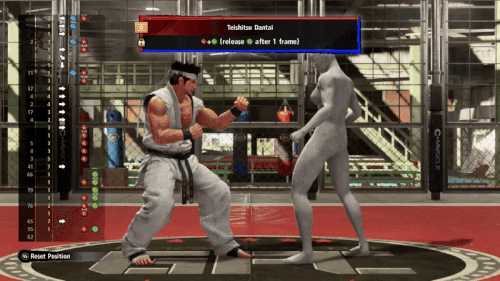
What does it really mean to be the strongest?
Ever since the announcement teaser for VF5REVO sometime late last year, I was thrilled out of my goddamn mind to see it finally be ported to something that wasn't console exclusive. You see, a while ago, VF5FS was free via PS Plus, and I had tapped into it half-heartedly because I had heard of Virtua Fighter somehow-- ostensibly through the Akira Yuki assist trophy in Smash Ultimate. Perhaps a few rounds of getting my ass kicked and failing to understand that it wasn't really like Tekken made me bored of it pretty quickly, so I opted to do other things with my time.
Here we are, years later. Tekken continues to shoot itself in the foot and I'm dying to play something on my fightstick. I've sunk perhaps 50 hours into REVO so far, and I don't want you to have the conception that I'm any good at this game. I think my highest rank is like, LV.14 on Jacky Bryant. Sure, I could climb higher if I wasn't anxious about playing ranked matches, but that's just not in the cards for me yet. Soon, though! What I want to talk about is how mechanically smooth this game feels, and most of all, the community surrounding it.
For the un-initiated, Virtua Fighter is a three-button fighting game. Punch, Kick, Guard - PKG. Sometimes you press punch and kick together, or punch and guard together, and you get different results depending on what direction you input alongside your buttons. Virtua Fighter also subscribes to this theory of rock-paper-scissors: striking attacks beat throws, throws beat guarding, and guarding beats striking attacks. Pretty simple, yeah? Oh, there's also side-steps, just like Tekken. Did I mention sabaki, foot position, GTE, inashi, abare, or nitaku? I still barely understand the concept of these terms, but they're everpresent in playing the game beyond just pressing buttons and praying for the best. I kind of have an idea of a few of them, right- Jacky's P+K+G -> K -> 4 has sabaki properties, which means it'll counter an inbound high punch and give me the advantage in the next turn. That makes sense, doesn't it?
But for all of the technical jargon that goes into this game, it's so goddamn solid to play that you feel inclined to become better to make yourself worthy of all of the options and mindgames that are just waiting for you to reach out and take them. They're not at all inaccessible, but it'll cost you time and effort to even begin to understand why the hell foot position of all things matter. But they do, everything does, down to the science of mashing against a stagger.
The golden part of REVO isn't entirely the gameplay, though. To be honest, some of it is a little skeletal: I hate the idea of having to pay for all of the customization options and DLC when this game is like, 20 years old now. You can't justify it. I'm sure REVO didn't have a massive dev budget or anything of the form, but I'm gonna keep it a buck with you, I'm not paying 30 USD to dress up and look pretty. There's also not a lot of single-player content beyond just regular arcade mode. I was playing a lot of VF4E over the summer, and the single-player arcade journey mode or whatever was so goddamn cool that I think it's a huge wasted opportunity for the developers to cull that at the last second.
The people, though... In 50 hours, I've made so many friends who are all like, oldheads, if I'm being honest. But they're all so goddamn kind, all so willing to help you learn a thing or two. There's no sensation of toxicity here. It feels like you're playing competitive chess or something, whereas Tekken's scene felt a whole lot more visceral and tied to rage or superiority complexes. This is not to say I've never met nice people on Tekken, no, some of my best friends have come from there (If you're reading this, hi, Bill! Oh, you too, Lyrical!), but I mean I can add people after ranked matches and be sure that the conversation will be friendly and geared towards the common goal of getting better. Hell, I'm friends with this one Japanese Akira player at the top of the fucking food chain, and he still somehow has the humility to apologize to me for having to go somewhere after tearing my head off for 15 sets in a row. It's beautiful, it's so beautiful, I literally cannot overstate how much I love the community surrounding this game. Thank you for everything, fellows, and just you wait until I get my ass in gear and learn my nitaku setups. You're done for sooner than you think.
Night in the Woods
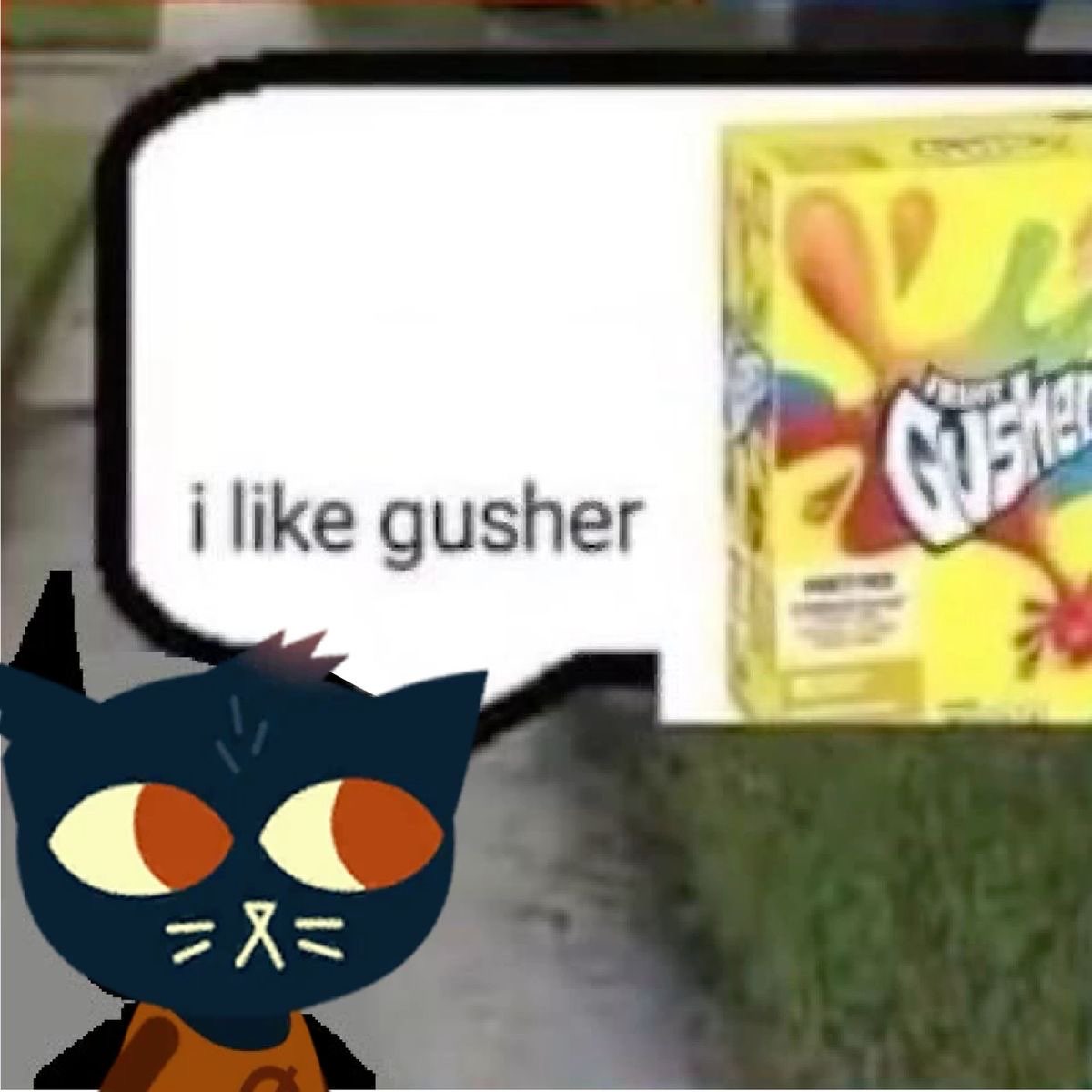
I think I've been putting off playing this game in full for at least six-seven years now. That's saying something. Like, I had a Gregg profile picture WAAAY back when even though I had barely played through the first act of this game. But here we are, years, in the future, and I'm fresh off of finishing the game for the first tie. Somehow, somehow, SOMEHOW, I had managed to get away from any massive spoilers in that interlude period, so every beat of the story hit me as hard as it was originally meant to. Again, it'd be a shame if I just recapped the story of the game and called it a review, so let's try to stick to the more concrete points.
Possum Springs reminds me so much of the town I grew up in to the point where it's almost painful. You could tear out all of the dialogue in this game and I'd still feel perfectly at home within the locations that the story takes place in; everything the story is made so much more powerful and personal to me just because it's the spitting image of a town in the low Appalachia. These are all familiar conversations, these are all familiar people, and if they weren't vector art anthro characters, I'd probably know them all by name. It's immersion without having every blade of grass textured to the last atom.
Let me break with my fawning for a moment- I have an absolute love-hate relationship with Mae as a character. She's well written and everything revealed about her makes total sense, which, in a way, brings me to despise her more and more. I sympathize with her rationale, flawed as though it may be, but God she's still so agonizing to play as just because of the way you as a player have only a slippery grasp of what you can help her say or do. I'm not saying this in a "oh, I want full control over the character and the story," because games like that are usually MMOs or shit like that.
I'm more than glad that Mae is her own person. I'm thrilled that she's so flawed, really- good writing is meant to evoke emotion. Mae does it so well that it feels strangulating. I guess the only thing I could be critical of is how accepting everyone is to her despite all these flaws. I don't think she suffers enough, which may sound insane on the outside but I do genuinely believe that more of a trial (beyond what goes on in the endgame) that gives her time to feel introspective rather than faced with physical safety concenrs would be good for developing her further. But Mae is a free spirit, regardless, so it's ironic that I should pretend to know what would be best for a character who already knows what she wants.
R4: Ridge Racer Type 4
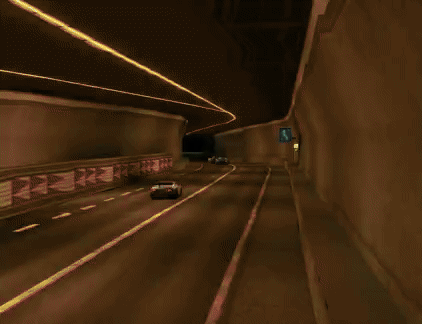
Some part of me wishes I was writing an essay about this game. The rational part of me disagrees entirely, because I've got too much coursework to undertake something that passionate. That train of thought alone should be a testament to how I feel about Ridge Racer Type 4 - a racing game with genuine emotion baked into it, a sort of Gran Turismo with a soul beyond the celebration of motorsport.
In terms of handling and mechanics, I'll forever stay on the side of Gran Turismo in all of its iterations. I grew up playing Gran Turismo and have a bias towards it, naturally, but it's hard to argue against the comprehensiveness of that series when it comes to motorsport, especially when you look at
What Ridge Racer has that I believe defeats the original PlayStation's Gran Turismo entries isn't the amount of manufacturers or the fine tuned inputs of each individual car. No, Ridge Racer cannot really be put in that same stratification: it leans heavily on the arcade-feel style of racing in the same way that, say, Wangan Midnight Maximum Tune does.
There's this raw feel of heartpounding adrenaline you get from playing this game's Grand Prix versus the touring modes in Gran Turismo that stems entirely from the fact that you're given dialogue. Teams are not just decals you represent. Ridge Racer links your very soul to the car you're driving by introducing the team you're driving as by giving you consistent interaction with the team's manager. Each team has a story, one that progresses as you work your way through all three of the heats.
I was nearly moved to tears by the endings of both Pac Racing Club and Racing Team Solvalou. In a scenario like the ones that Gran Turismo presents in championships, you are motivated to win just because you don't want to lose - and you'll get some money, too. Ridge Racer Type 4 gives you the motivation to win by the words that the gradually evolving characters of the managers share to you before and after a race.
You can scrape by with the minimum result in any of the heats, naturally, but you feel a sense of disappointment in yourself as the managers express theirs in you. Story aside, and returning to an earlier point, the handling in this game is PHENOMENAL. Mastering cars takes genuine elbow grease and determination, and hitting the apex of a corner perfectly feels so unbelievably rewarding.
Better yet is the replays. I feel my heart beat a little faster watching the brake trail effect that Namco somehow managed on the original PlayStation. One of the main draws to Ridge Racer Type 4 is the music. The entire soundtrack is beautiful. Every single song evokes extremely powerful emotion in one way or another - select examples are "Your Vibe" and "Movin' in Circles."
The main call to fame for the music here is the fact that JPEGMAFIA sampled "Move Me" in BALD!, and for damn good reason. Beside all of the lovingly crafted elements of this game, the announcer really ties it all together. Aggressive (yet supportive) callouts when you're lagging behind or pressing whoever's in first -- "Take care of this loser!" -- really shoot some extra adrenaline and outright moxie into you.
Overall, this game quite literally sticks to the name of the championship "Real Racing Roots" -- the sheer essence of speed and passion lays nested within this title. Style, speed, sleekness, story. Love this shit.
"... To accept all that lies ahead and to achieve victory. That is the way of RTS."
Class of '09

Corny ass statement, but this game will do a lot to skew your worldview. It'll make you take a few steps back and, if you went to an American high school of any merit, make you think about the people you were forced to interact with for the entirety of your tenure there.
Class of '09, a wonderful take on the genre of visual novels, will break your nose, steal your money, call you a couple homophobic slurs and leave you bleeding on the ground - and you'll love it just for that. The themes explored throughout every route of the game are so unbelievably
The protagonist, Nicole, quite literally has every reason to be as evil as fucking possible in every single route of the game, giving the player a wonderful power fantasy when things go entirely in their favor. Hell, I don't think I'm ever going to play a visual novel that gives me the option to "stay home and kill myself" again.
Sensitive topics are handled with a barefaced approach that you can't find anywhere else other than the setting that Class of '09 fosters, giving the player a sort of Russian Roulette type of emotion: "will this choice make me feel like utter shit or will it lead to other people suffering in an extremely amusing manner?"
I'd rate it higher, but some of the storylines could have used more coats of paint, there were a couple typos, and there wasn't a Jecka romance option. Here's to hoping the Re-Up has such a thing.
(no spoilers pls.)
OFF

11/4/2023. Some spoilers ahead, but the game's kind of old already, so... If this information is not automatically betrayed by the fact that I have themed the entire page around OFF's battle system, I have a keen sense of adoration towards this ethereal RPG.
Coming from me, this is high praise. I have found a loss of interest in games of this type a while ago, with the last RPG that I played from start to finish being Final Fantasy VI. OFF, a French RPG translated into English by a devoted team of people, is a game made in RPG Maker 2003 that covers the protagonist's journey to "purify" the world.
What exactly purification means is not revealed until far later into the game's story, and the very nature of The Batter's existence is kind of hazy up until the endgame, in which you are left to theorize as to who/what he is. This is something I absolutely adore about this game - it reminds me of
Deviating from the topic of storytelling (which OFF does masterfully, so goddamn well that I can imagine it as some form of book), the music in OFF touches strings in my heart I never knew existed. The battle theme barely even sounds like a battle theme, rather, as one comment stated, it sounds like "music to get shit done to." This is more or less exactly the point. Battles aren't just a "let's get rid of these guys so we can keep moving forward!" deal -- with The Batter as the protagonist, I felt compelled to go out of my way to purify every single spectre I could find. After all, if the protagonist tells you what his holy mission is, you're inclined to play along.
The tracks tell stories that words alone only supplement. For example, when facing off against one of the three Zone Guardians, you are greeted with this beautiful track that sounds like destiny itself calling your name. There is so much emotion behind the music itself, and each individual song title adds another layer of depth to it.
In terms of battles and just how enjoyable they are, OFF does a great job of keeping the player locked in. Each special attack has a unique name, ranging from "Run with Dementia" to "Photographic Blur" and other assorted goodies. Symbolism is painted all over the naming choices in this game, and if I really wanted to pull out each individual example that made my hairs stand on end, this review would read as more of a goddamn table than anything else.
OFF makes me feel a deep sense of sorrow, one that can only be drawn out by beautiful literature. I'll finish this one off with a quote I love.
"There was nothing else to be done but wait for the man who would rise forth to destroy him. For deep inside his soul, there was no doubt that what he did was evil."
Need for Speed: Most Wanted
I don't think I've played a game and enjoyed it to this degree since I played through Yakuza 0 back in 2019. There are several elements to Most Wanted that draw me into such a sublime fascination with it, and I find it hard to narrow them down to fit into a paragraph box.
Need for Speed Most Wanted was released in October of 2005, right in the middle of the 2000s - an era of teenage angst, evolution, economic downturn and a renaissance of expression - hell, the internet was locking itself into the mainstream with every passing day. Most Wanted's atmosphere and general aesthetic adhere to the concept of teenage angst with flying colors. If you look at it sideways, the game's all about defying authority.
Every single milestone and bounty event have you absolutely tear through the Rockport Police Department, even though they're just trying to keep you from endangering innocent people with your sub-200 mile per hour street racing. The music blends drum and bass with heavy metal, acting as a sort of avatar for whatever swirling sensations had to be expunged from the soul of a generation who knew no one understood them.
The menus and displays throughout the game have a brusque panache to them; graffiti tags, sharp colors, and clean-cut audio design make you feel like you're doing something immoral, yet, instead of reminding you of your deeds, the game actively rewards you for it.
The city of Rockport is beautiful, vast, and most of all dynamic. The consistent fear of the police and the amount of tools and locales the game provides for you to outrun and destroy them truly reminds you that you're striving to be the Most Wanted racer in the entire city, to the point where the goddamn federal police try to take you out once your heat goes too high.
The police in this game are, bar none, my favorite part of the experience. EA went all out with the police chatter. I found myself consistently surprised by the case specific dialogue over the radio when I pulled some insane stunt like smashing through a gas station, traveling over a boardwalk, whatever. The amount of character and passion that went into arguably the most impactful aspect of the game does not go unnoticed.
The car models are amazing, but the list (32 grand total, IIRC) is somewhat restrictive. Also, why would they bother having two versions of the Pontiac GTO? Wasted space for a perfectly good car. That's a minor issue, though- my main and only gripe about this game is the lack of character within the actual antagonists of the game, the Blacklist 15.
Out of all of them, like, 3 of them bother using the in game SMS system to talk to you. They exist as paper tigers (other than Earl). You're given information about them, a cool cutscene, and it's right back to the cutting room floor with you. Here is where I believe lays the singular biggest miss of the game - the fact that there wasn't MORE to be said about these racers.
You're not given enough to truly want to tear them out of your way. The character designs (namely Taz, Baron, Ming, Webster) are bloody spectacular, and yet nothing is done with them. They're the bad guys, you're the good guy, get to work. Just a few more SMS messages, perhaps some lore tidbits sprinkled in, and they would've become memorable for more than their livery. Other than Earl. Earl is a cruel son of a bitch who clawed his way out of hell.
This point being said, it's kind of tough to ask for lore coming from a Need for Speed game. There is a thin line to cross there. Oh, and you know what? FUCK drag races. I hate them. Worthless. Okay, that being said, I appreciate Most Wanted mainly for what it is and what it represents, and picking up the disc I had for some time beforehand to run through it again was a great chance to connect with myself and get an injection of pure red-blooded adrenaline.
Need for Speed: Carbon
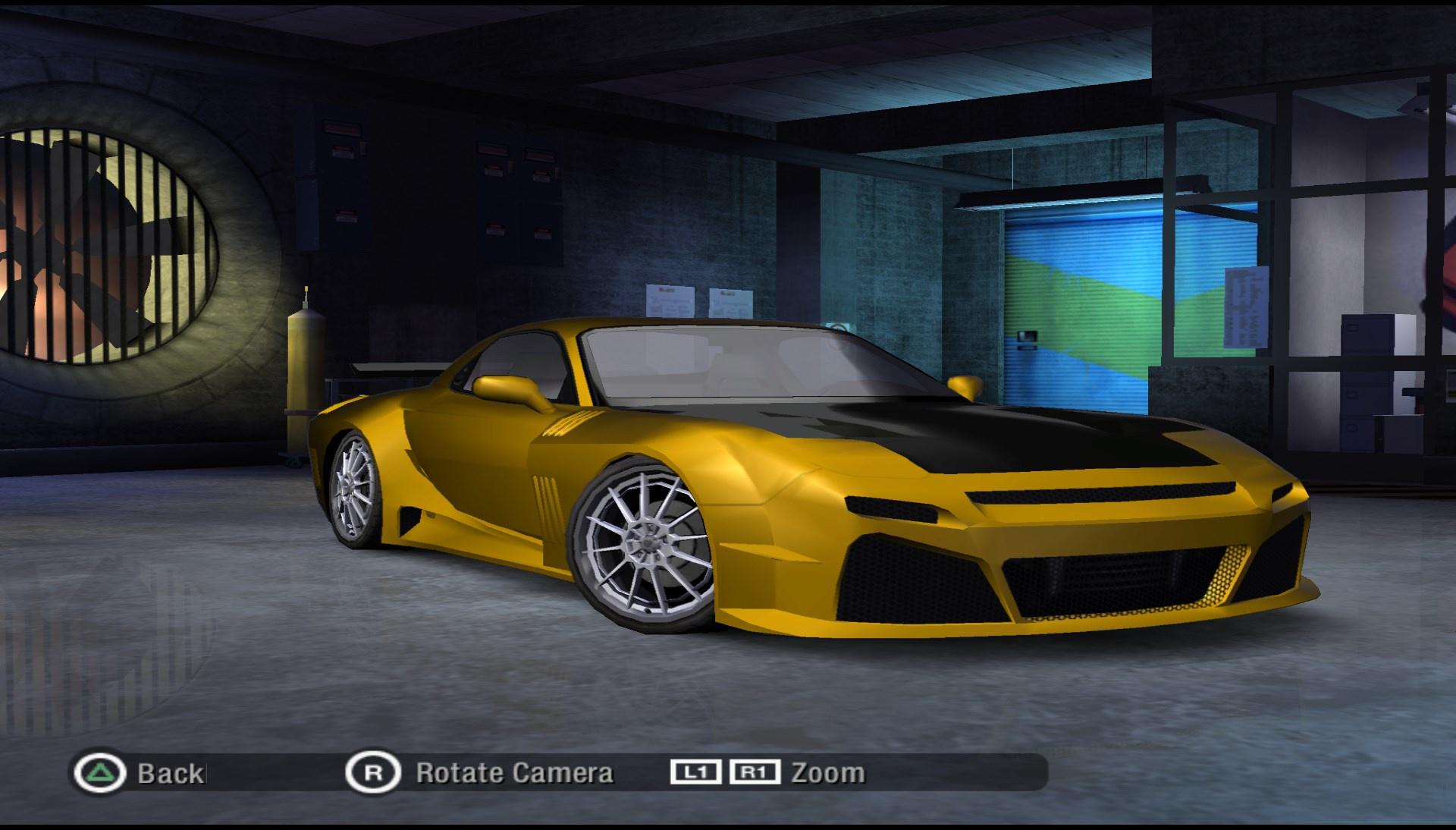
I have to give credit where it's due: I picked this game up because I recognized one of the tracks from a TikTok post where a cat was building a pipe bomb. It's one of those "see it to believe it" things that doesn't change my perception of the game itself.
Carbon is the successor to Most Wanted, both of them being incredibly solid racing games. Now, here's the thing: Carbon feels more like a predecessor to Most Wanted than vice versa. There are improvements in many locations that set Carbon apart from Most Wanted - namely, the change in atmosphere and some niche parts of the game - but it really does show that it's a holiday release.
Carbon came out almost an exact year after Most Wanted, and with that in mind there is a LOT of credit to be given to the developers. Not only did they figure out the niches of the "Autosculpt" system and build up an entire map, alongside with making the physics engine feel less janky, but throughout the first time around Carbon feels worth the time you sink into it.
However, Carbon isn't a long game. The campaign can be burned through extremely quickly in comparison to that of Most Wanted's - compare fifteen Blacklist members to a grand total of four boss races - and police chases aren't really important as they were in Most Wanted.
It stands out in terms of atmosphere and feels like an okay DLC for Most Wanted, but as a standalone game, Carbon really isn't the best. Even if the Canyon Runs are fun, even if the drifting physics are easy to get a grip on, and even if the music choices are immaculate, that does not excuse the fact that Carbon lacks replayability, something that short games need to stay afloat.
It's fun, but it would've made sense BEFORE Most Wanted. It tries to fill shoes a few sizes too big, and even though it can jog in that state, it can't sprint.
Mario & Luigi - Superstar Saga
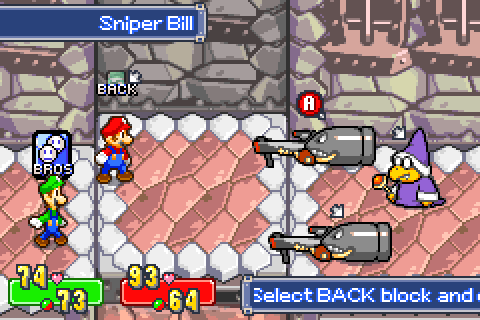
I thought I might introduce this page again by way of remaking my first review, albeit slightly more in depth! The original version of Superstar Saga came out for the GameBoy Advance all the way back in November of 2003, kicking off a worthy series of games from AlphaDream.
Superstar Saga's take on the Mario universe arrived in a time where several other fantastic games (think Double Dash, Advance 4, Mario Party 5) within the same franchise were hogging up center stage, developed by a studio that hadn't yet existed for three years and making a heady entrance onto the scene.
Now, my first impressions when it comes to turn based RPGs tends to be one of apprehension, since I have simply played so much Pokemon and Final Fantasy to really take much joy in waiting to strike - this might appeal to those who enjoy strategy and all that, but hell, I'm impatient.
Superstar Saga and every following entry into the Mario and Luigi RPG series manages to make every single battle equally exciting with the systems in place to allow you to dodge/counterattack throughout the enemy's attacking turns, which, personally, I believe was a downright incredible choice for the studio to make. I have only praises to sing for the battle system.
The music is of high quality coming from the somewhat limited GBA soundchip, however, hearing the same battle theme throughout the entire game for every encounter that is not a boss causes the upbeat battle tune to lose its charm after the first fifteen fights.
The storyline isn't necessarily dark or out of left field like the sequel (Partners in Time) ended up being, and it does repeat itself a few times - I can see how this could lead to a loss of player engagement. That being said, the graphics and general feel of the game are charming, charming to such an extent where it feels as though the sprite artists had dipped their work into the fountain of youth itself.